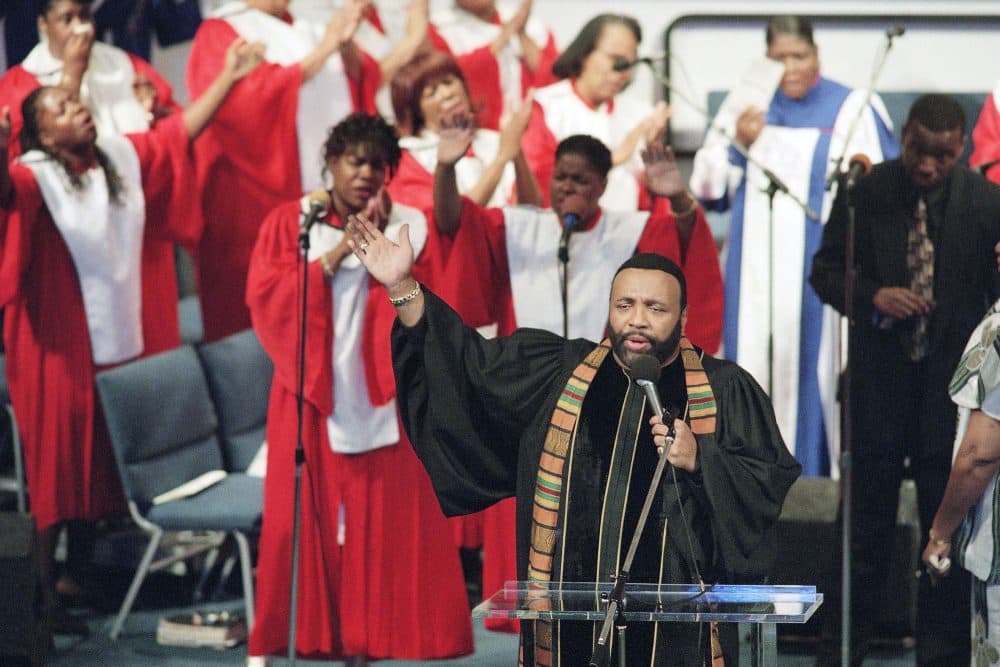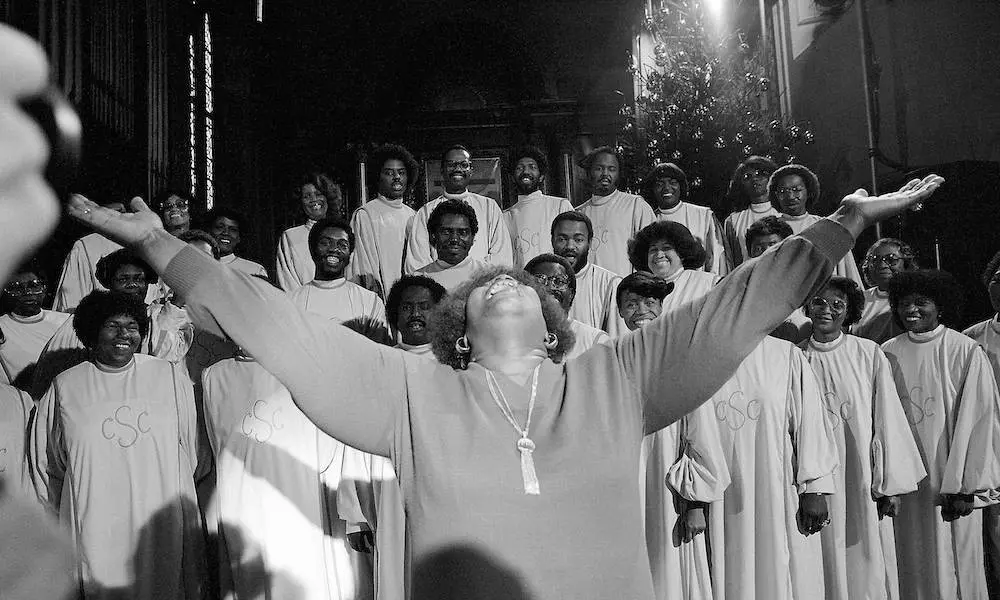Gospel music has been an integral part of popular culture for centuries. From spirituals and hymns to the modern gospel, the sounds of faith have informed and influenced a wide range of musical genres including jazz, blues, rock & roll, and hip-hop.
This article explores how gospel music has shaped our society’s soundscape over time, celebrating its powerful legacy in the world today. We take a look at some of the most beloved songs from times past through to contemporary hits that demonstrate just why gospel music is so significant – both as an influence on popular culture and as a source of joyous expression around the globe.
The Impact of Gospel Music in Popular Culture
Gospel music has had a profound impact on popular culture, influencing both the musical and lyrical content of modern songs. From its origins in the African American church to its current presence in radio broadcasts and streaming services, gospel music continues to be an important part of our cultural landscape.
The influence of gospel music can be seen throughout popular culture today, from mainstream hip-hop and rap lyrics to contemporary pop ballads. It has even been used as a tool for social change by inspiring people with uplifting messages that speak directly to their faith.
The power of gospel music lies not only in its ability to bring joy into people\’s lives but also in its capacity for personal growth and transformation. By allowing listeners to explore spiritual themes such as hope, redemption, love, justice, faithfulness, and courage through song, it provides them with opportunities for self-reflection and understanding while also helping them connect with others who share similar beliefs.
As a result, it encourages individuals to think more deeply about their relationship with God while simultaneously celebrating the beauty of His work within us all. Furthermore, when performed live or recorded professionally—whether on the big screen or stage—gospel music serves as a powerful expression of emotion that reaches beyond traditional boundaries between genres like rock ‘n’ roll or country westerns and speaks directly into one’s soul regardless of religious background or denomination.
Whether youre looking for inspiration at home or searching out ways to spread your faith outside your walls; Gospel Music is there providing an authentic experience every time!
History and Development of Gospel Music

Source: www.wbur.org
Gospel music has been an integral part of popular culture for centuries, with its roots reaching back to the African continent. Throughout the years, gospel music has seen a variety of changes and developments, shaped by both spiritual and secular influences.
The early origins of gospel music can be traced back to the 18th century when slaves in America sang songs about faith and freedom using traditional African musical styles. This style eventually flourished into what is now known as Negro Spirituals, which combined elements of Christian hymns with blues-like rhythms and harmonies. During this period, many churches began incorporating these spirituals into their services as a way to provide comfort during difficult times.
In the early 20th century, Thomas Dorsey was one of the first composers to combine religious lyrics with jazz techniques such as syncopation and improvisation; creating what would later become known as “gospel” music. This new style quickly gained popularity among churchgoers who sought out more engaging forms of worship through uplifting sounds that could bring joy amidst hard times.
Throughout gospel’s history, there have been many subgenres developed including ‘traditional’ or ‘classic’ gospel which uses choirs accompanied by piano or organ instruments; contemporary gospel featuring electric guitars solos over drum machine beats; urban/hip-hop influenced gospels combining rap verses with soulful choruses; country & western gospels blending classic country guitar riffs alongside heartfelt vocals inspired by folk tradition; plus jazzy smooth grooves often associated with inspirational ballads praising Gods love in various ways. As technology progressed so did how people experienced Gospel Music – from records players spinning vinyl albums to streaming platforms offering thousands upon thousands available at any given moment! Today we celebrate Gospel Music for its ability to evoke emotion while allowing us to express our feelings towards God through song whether it be in celebration or prayer – all made possible due to its long-standing history full of development within popular culture.
Celebrating the Power of Faith Through Sound
From its roots in African-American churches to the vibrant, soulful sounds of modern gospel music, the gospel has had a profound influence on popular culture. Celebrating the power of faith through sound, gospel music has become deeply embedded in American history and continues to inspire people around the world.
With its complex harmonies, upbeat rhythms, and powerful lyrics, it is easy to see why people are drawn to this genre. Whether it\’s Kanye West sampling a classic hymn or contemporary artists like Kirk Franklin and Mary Mary taking over radio airwaves with their inspirational tunes, gospel music is always making an impact. From traditional spirituals echoing through communities of faith or uplifting lyrics filling stadiums during live concerts – the power of gospel music can be felt everywhere! It is no surprise that so many have been influenced by this unique form of expression that celebrates both God and humanity through song.
Spiritual Influence on Contemporary Music Genres

Source: www.udiscovermusic.com
The ever-evolving genre of gospel music has had a tremendous impact on the development of popular culture and continues to shape contemporary music genres. Although its spiritual influence is often overlooked in today\’s secular society, gospel music remains an integral part of many musical styles including rhythm and blues, rock n roll, soul, funk, and hip hop.
From early pioneers such as Sister Rosetta Tharpe to modern superstars like Kirk Franklin and Kanye West, artists have embraced the power of gospel sounds to deliver messages that evoke both emotion and thoughtfulness. Gospel music has long been known for its unique combination of passionate vocals blended with powerful rhythms that encourage people to move their feet as well as their spirits.
The combination provides a distinct flavor that can be heard when listening to tracks from some of the most influential albums in history. For example, Led Zeppelin’s classic hit “Stairway To Heaven” features a very prominent organ solo influenced by classic Gospel styling while other top pop hits such as Michael Jackson’s “Human Nature\” are heavily inspired by Gospel melodies throughout the song. Furthermore, artists like Chance The Rapper have utilized more modern versions or remixes of traditional Gospel songs within their works creating entirely new sounds that still manage to maintain the same passion found in older versions but also incorporate new elements into them making them fresh yet familiar at once.
When witnessing this phenomenon first-hand live performances tend to take on an even greater meaning allowing for performers and audiences alike to feel empowered through shared experience enhanced by uplifting lyrics born out of faith-based themes delivered via stirring vocal deliveries backed up by rousing instrumental accompaniments all combining perfectly resulting in moments truly unforgettable transcendent experiences. This type of energy brought about through Gospel Music is something that will no doubt continue to inspire future generations come.
Conclusion
Gospel music has had a tremendous influence on popular culture, and it is clear that its power continues to be felt today. From the earliest spirituals of the 19th century to modern gospel sounds, this genre has provided countless individuals with solace, comfort, and joy over the years.
By celebrating these sounds of faith we can continue to honor their importance in our lives as well as in our society at large. Gospel music will always remain a cornerstone of popular culture, bringing people together in powerful ways.

Source: ministryspark.com




